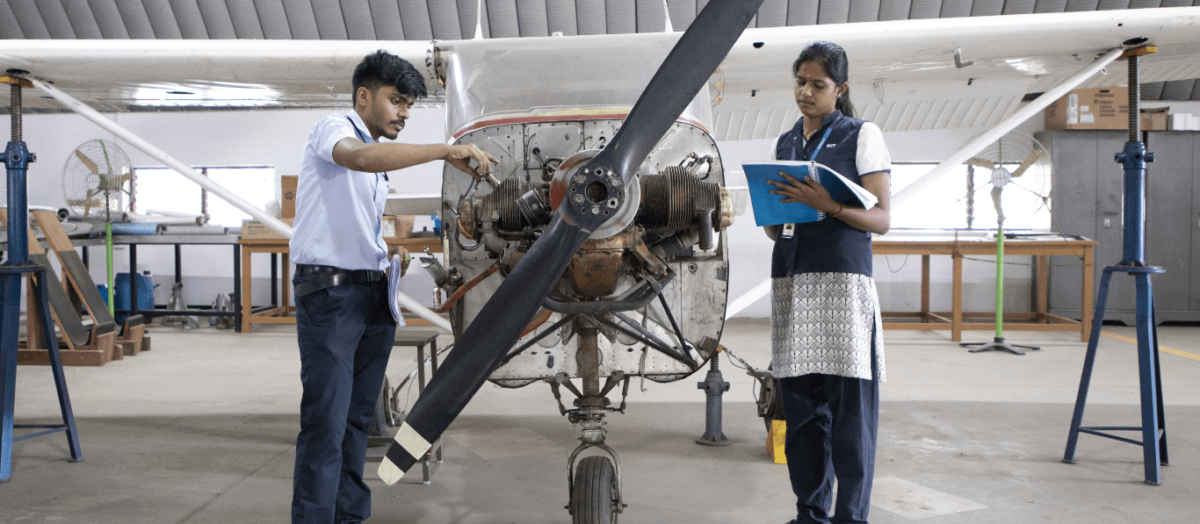Colleges With Aerospace Engineering For Aspiring Aerospace Engineers in the World: The aviation industry’s technological evolution heavily relies on aerospace engineers. As the demand for aircraft design and production remains robust, the need for skilled aerospace engineers continues to grow. While many institutions in the USA provide aerospace engineering programs, only a select few truly shine. Anyways, this article treats the best colleges with aerospace engineering programs for those aiming to soar in this field.
Understanding Aerospace Engineering
Aerospace engineers play a pivotal role in the creation, testing, and production of aircraft, spacecraft, satellites, and missiles. Their expertise ensures that prototypes function as expected and paves the way for innovations in space exploration, aviation, and defense mechanisms.
Depending on their specialization, aerospace engineers might focus on specific aerospace products like missiles, military jets, spacecraft, helicopters, or commercial planes. Also, They can hone their skills in areas like navigation, structural design, guidance, or manufacturing techniques.
Recommended: Mechanical Engineering Jobs – How to get Mechanical Engineering Jobs
Defining the Aerospace Engineer
Aerospace engineers are at the forefront of technological advancements in defense systems, aviation, and space exploration. Their responsibilities encompass design, analysis, testing, and development. They set quality standards, identify product issues, and devise solutions.
Specializations within aerospace engineering can range from aerodynamics to propulsion and combustion. As experts, they master various domains like thermodynamics, celestial mechanics, flight mechanics, and guidance systems.
Key Responsibilities of Aerospace Engineers
Aerospace engineers are tasked with:
- Reviewing design specifications and proposals.
- Assessing project feasibility both technically and financially.
- Collaborating with clients on budgets and timelines.
- Conducting research, both theoretical and practical.
- Ensuring designs adhere to engineering principles and customer requirements.
- Overseeing design, manufacturing, and testing procedures.
- Evaluating and modifying products.
- Ensuring safety and quality standards.
- Investigating defective or damaged products.
- Writing reports, manuals, and documentation.
- Providing technical guidance.
- Analyzing and interpreting data.
Aerospace Engineer Compensation
The aerospace sector offers diverse opportunities, but compensation varies based on the industry and employer. Factors like location, demand, and cost of living can influence salaries. In the USA, the median annual wage for aerospace engineers is $122,270, as reported by the Bureau of Labor Statistics.
Becoming an Aerospace Engineer: A Guide
- Pursue a Bachelor’s Degree: Only a handful of universities offer specialized aerospace engineering bachelor’s programs. Aspiring engineers should start by obtaining this degree.
- Engage in Internships: Internships provide invaluable hands-on experience, allowing students to apply classroom knowledge in real-world scenarios.
- Seek Job Opportunities: Aerospace engineers can work on various aspects of aircraft design and performance.
- Continue Learning: Numerous continuing education programs are available, covering topics from vehicle design to energy sources.
- Obtain a License: Professional licensure can open doors to government contracts, consulting roles, and public services.
Highlighting the Best Colleges with Aerospace Engineering Programs
- University of Maryland–College Park: Recognized among the top ten aerospace engineering programs in the USA, it offers a comprehensive curriculum and diverse research opportunities.
- MIT Aerospace Engineering: MIT’s program covers a broad spectrum of aerospace disciplines, from aerodynamics to software engineering.
- Georgia Institute of Technology: Home to one of the oldest aerospace programs, it offers a holistic 132-credit program.
- Indian Institute of Technology, Kanpur: Renowned globally, IIT Kanpur boasts an aerospace department with cutting-edge facilities.
- McGill University: Housing the McGill Institute for Aerospace Engineering, it’s one of Canada’s premier institutions for aerospace studies.
- University of Texas–Austin: Their interdisciplinary approach covers astronautics, earth-space engineering, and more.
- Texas A&M University–College Station: Known for its top-tier aerospace engineering programs, it offers innovative educational and research opportunities.
For those passionate about aerospace engineering, these colleges provide the foundation and expertise needed to excel in the industry.
Recommended: Netflix Engineering Manager Salary
Conclusion
The realm of aerospace engineering is vast, dynamic, and integral to the future of global transportation and space exploration. As the industry continues to evolve, the demand for skilled aerospace engineers is more pressing than ever. The institutions highlighted in this article stand as beacons of excellence, offering unparalleled education and research opportunities for aspiring aerospace engineers. By choosing to study at these esteemed colleges, students not only equip themselves with the knowledge and skills required but also position themselves at the forefront of technological advancements in the aerospace sector. As we look to the skies and beyond, it’s clear that the future of aerospace engineering is bright, and the next generation of engineers will play a pivotal role in shaping our world’s future.





















